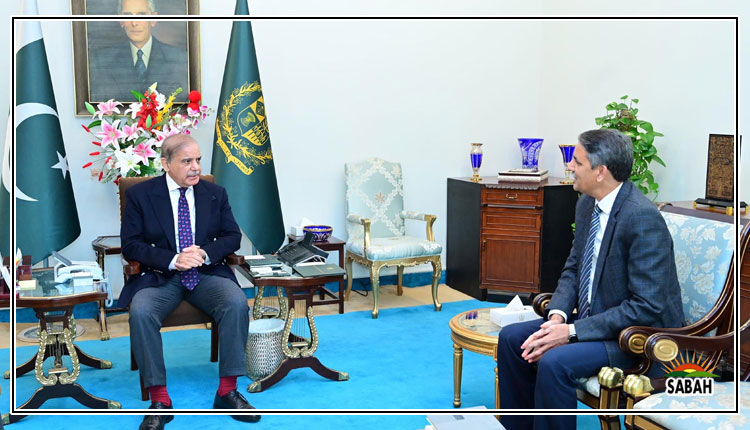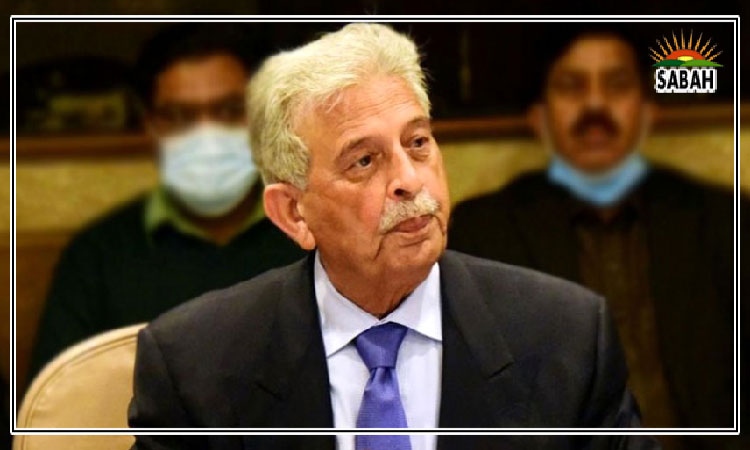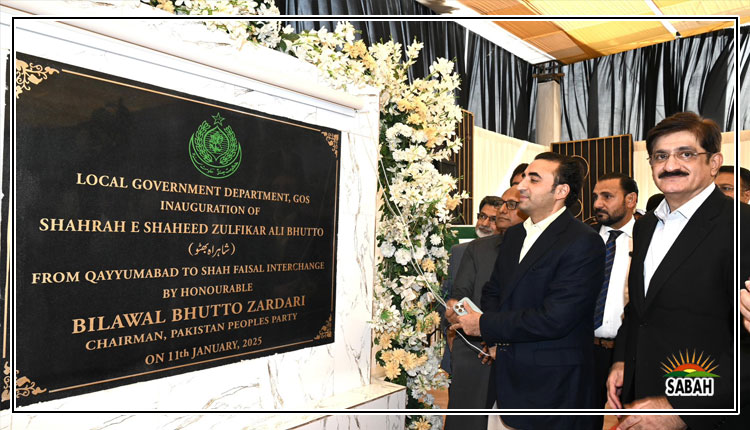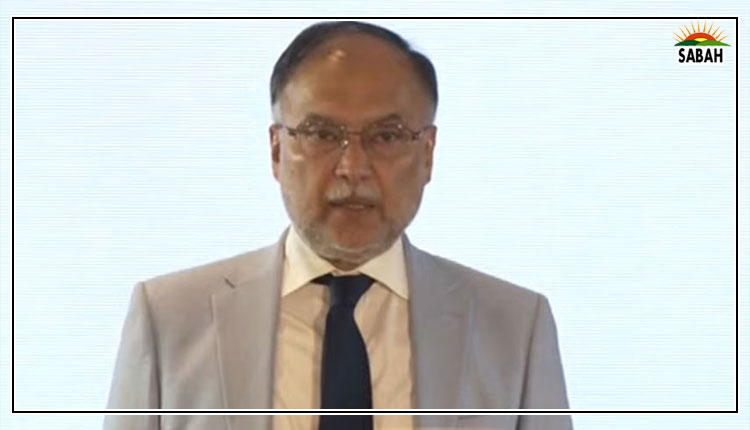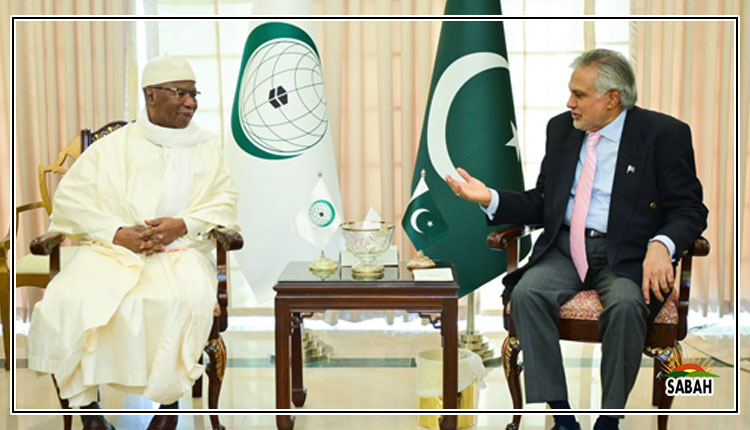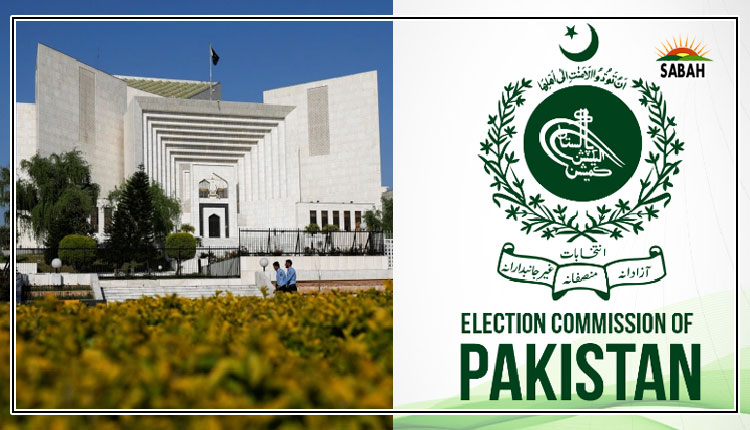SC to conduct hearing on ECP’s plea seeking review of the former’s verdict of holding polls in Punjab on May 14, tomorrow
ISLAMABAD, May 14 (SABAH): The Supreme Court (SC) will conduct hearing on the Election Commission of Pakistan’s (ECP) plea seeking review of the former’s verdict of holding polls in Punjab on May 14 for hearing tomorrow (Monday).
A three member SC special bench, headed by Chief Justice of Pakistan (CJP) Justice Umar Ata Bandial and comprising Justice Ijazul Ahsan and Justice Muneeb Akhtar, would take up the plea at 12:30 PM tomorrow (Monday).
The Election Commission of Pakistan through Chief Election Commissioner Islamabad and others have made Speaker Punjab Assembly Mohammad Sibtain Khan and others party in the application. ECP has filed review petition through its counsel Sajeel Sheryar Swat.
On April 4, the same bench had quashed the ECP’s decision to extend the poll date from April 10 to October 8 and fixed May 14 as the new date for it.
The bench had also directed the government to release Rs21 billion funds for holding the elections in Punjab and Khyber-Pakhtunkhwa.
However, the ECP had apprised the court that the coalition government was reluctant to release the funds. It contended that holding separate elections in Punjab and KP would incur more expenses as compared to holding them on the same day.
Moved through Advocate Sajeel Sheryar Swati, the ECP in its review petition requested the court to recall its April 4 judgment in the interest of justice, arguing that it was per incuriam (lack of jurisdiction) to the constitution. Of the 326 National Assembly seats, 173 and 55 seats are from Punjab and KP, respectively, indicating 72 per cent of the total strength, according to the ECP review petition.
The review petition states that the change of election programme is the solitary domain of the ECP under Section 58 of the Elections Act, 2017.
Since general elections to the National Assembly are due in near future, with its term completing in August 2023, the ground realities need to be considered in true perspective, according to the petition.
The ECP says it requires the government machinery that is non-partisan and has no inclination towards any political party to perform its constitutional duties to conduct the general elections honestly, justly, fairly and in accordance with law. If elections to the NA are held while permanent governments already in place in Punjab and KP, the sanctity, objectivity and fairness of elections to 72pc seats of the national assembly would inevitably be compromised, the petition contends.
The review petition says the question of harmonising Articles 218(3) and 224 as well as the provisions of the Elections Act, 1997 is of the first impression and has not been dealt with by superior courts. It emphasises that the ECP has even been guarded under Article 222 from any intervention in clear words that its power cannot be diluted, whittled away or abridged through parliamentary intervention.
Instead of Section 58 of the Elections Act, the Supreme Court in its order relied upon Section 57 in order to designate President Dr. Arif Alvi as authority for fixing the date where the assemblies stood dissolved by efflux of time, the ECP recalls.
The petition reminds the court that legislature while enacting Sections 57 and 58 of the Elections Act was cognisant of the fact that situations may arise due to which elections dates are required to be changed.
Citing the 2008 general elections, the petition argues that the ECP keeping in view the exigency and requirement of that time had delayed polls for 40 days. That is why the legislature while enacting Section 58 put overriding phrase “Notwithstanding anything contained in section 57”, at the very start of Section 58(1), knowing it fully well that Section 57 enumerates something that is contrary to what Section 58 would consider as permissible.
The petition emphasises that the courts interpret the law, but they do not rewrite it. As per literal interpretation of the provision of Section 58, change of the election programme or giving a fresh programme — of which poll date is an essential component or stage — is ECP’s domain. Thus, Section 58 overrides anything contained in Section 57 of the Elections Act and is divorced, in its essence, from Section 57. That is a simple, plain and clear effect of the overriding clause and as per the established jurisprudence of the country, the overriding clause takes precedence over the provision containing a contrary view, the review petition maintains.
It argues that the SC under no provision of the constitution or the law could have taken the exercise upon itself to appoint the poll date through April 4 order. The appointing of date or changing it is an executive exercise, and certainly not a judicial exercise, it adds.
On the other hand the 14th May (Sunday), a day on which the elections in Punjab were to be held as ordered by the Supreme Court. However, the ruling of the apex court regarding Punjab elections could not be implemented.
The elections did not take place nor could the orders of the Supreme Court be implemented. The Election Commission claimed that it had completed the preparations but owing to unavailability of funds, it was unable to move forward. The political parties also did not agree on the elections only in Punjab.
Given the uncertainty, the election campaign ended before it started, and the PML-N did not issue tickets to the candidates. The ruling parties say that the survival of the country lies in dealing with the crisis through joint efforts and resolving the issues through negotiations.
The SC had ruled the order of the ECP regarding delay in elections in Punjab as null and void, ordering polls on May 14. The apex court had also asked the government to release Rs21 billion in supplementary grant to hold polls, until April 10.
The court also ordered the electoral watchdog to present a report on the provision of funds on April 11. It came as Imran Khan-led party had filed the petition regarding delay in elections after the ECP on March 22 put off the polls till Oct 8, citing financial and security constraints.
Later, the federal government, in response, took the matter to the parliament to get the funding approved. Finance Minister Ishaq Dar presented the election expenses bill in the National Assembly.
The ECP, on April 11, apprised the SC in a report that the government had not provided funds to the commission for holding elections in Punjab.
According to the Election Commission, the government had not yet provided Rs21 billion despite SC’s order and the Punjab caretaker government had agreed to provide only 75,000 personnel for security. “There is a shortage of three lakh security personnel for the elections in Punjab,” the ECP noted.
Upon this, the court issued notices to top officials including Attorney General Mansoor Awan, State Bank of Pakistan (SBP) Governor Jameel Ahmad, Secretary of the Finance Department, and Secretary of the Election Commission of Pakistan (ECP) over failing to provide funds for upcoming Punjab elections.
Later, the PTI and the PDM-led government sat on the negotiating table, starting on April 27, to talk through elections but it culminated in consensus on holding elections simultaneously across the country with an impasse on the date during its third and last round on May 2.
On May 3, the ECP approached the court seeking review of its order to hold polls on May 14. Three days later, CJP Bandial said the apex court would proceed in line with the constitution and would not sit idle on the May 14 election issue if the dialogue between the government and the PTI failed.



